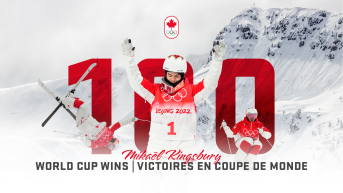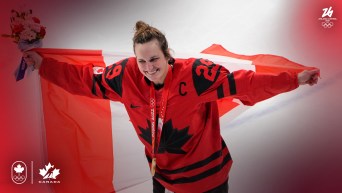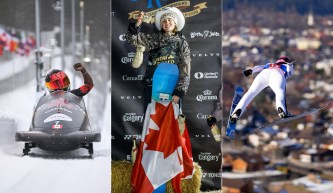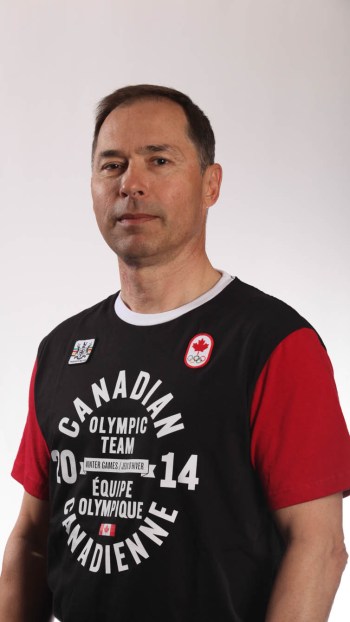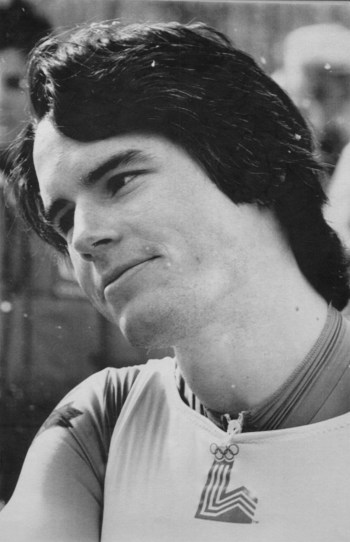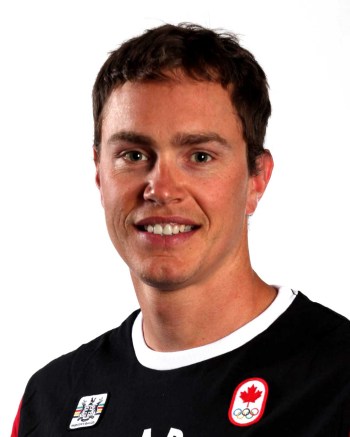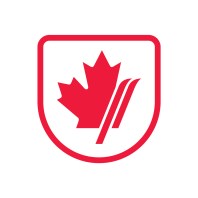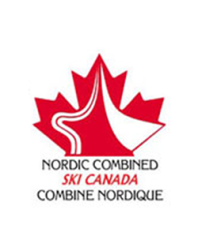“Best buds” continuing Canada’s legacy in men’s alpine speed events
First came the Crazy Canucks, then the Canadian Cowboys. Now, Canada’s latest generation of male alpine ski racers is looking to write their own bit of history.
Back in the 1970s and ‘80s, the quartet of Dave Irwin, Dave Murray, Steve Podborski and Ken Read made headlines with their “crazy” style—and their success on the slopes. Podborski was the first Canadian man to win an Olympic medal in alpine skiing with his downhill bronze at Lake Placid 1980.
Then in the 2000s and 2010s, we met some “cowboys”— Erik Guay, Manny Osborne-Paradis, John Kucera, Dustin Cook, Benjamin Thomsen, François Bourque, Mike Janyk, and Jan Hudec. At Sochi 2014, Hudec earned bronze in the men’s super-G, at the time just the third Olympic alpine medal for a Canadian man (after Podborski in 1980 and Edi Podivinsky at Lillehammer 1994).
The new crop of Canadians
The fourth such medal was a bronze in the men’s alpine combined at Beijing 2022. That came courtesy of Jack Crawford, who’s leading the charge for Canada’s current crop of alpine ski racers.
“The Olympic medal, that was definitely what kicked off my good results and career,” says Crawford, a 28-year-old from Toronto. “That whole season leading into it, I’d been skiing extremely well but wasn’t able to stand on a podium.
“It doesn’t matter how good you are, you never know if you’re going to get one of those [Olympic] medals. … To have it, it definitely gave me the confidence I needed to continue building my career.”
The next big building block of that career came when he won super-G gold at the 2023 FIS World Championships. And then in January 2025, Crawford earned his first FIS World Cup victory—and it came at the sport’s showcase event at Kitzbuehel, Austria. Crawford joined three other Canadians—Read (1980), Podborski (1981 and 1982) and Todd Brooker (1983)—in having their names inscribed on a cabin of the gondola at the Hahnenkamm mountain.
“It was just surreal. Winning that race hadn’t really set in for me; then getting to be at the gondola ceremony and getting to see all the prior names, all the way back to the 1950s, it was really cool,” says Crawford.
“I was able to accept what I had accomplished this past season, and to be part of that legend for hopefully what is the rest of my life, that is a goal and a dream I had as a kid, so that has really sealed it all. One of the cooler moments of my life.”
Teamwork making the dream work
But Crawford wasn’t the only Canadian on the downhill podium at Kitzbuehel that day. Cameron Alexander finished just 0.22 seconds behind Crawford to finish in third place.
That was the fifth career World Cup podium for Alexander, which includes a pair of third place finishes in Bormio, Italy, the site of where the men’s alpine events at Milano Cortina 2026. But for the 28-year-old from North Vancouver, who missed out on qualifying for Beijing 2022, getting that result at Kitzbuehel was extra special.
“For my career so far, that was the most meaningful result I ever had,” says Alexander. “Kitzbuehel is an extremely special place for any downhill ski racer. It’s kind of the most legendary, has the most history. Everybody wants to win there.”
Alexander was sitting in second place when Crawford came down the hill.
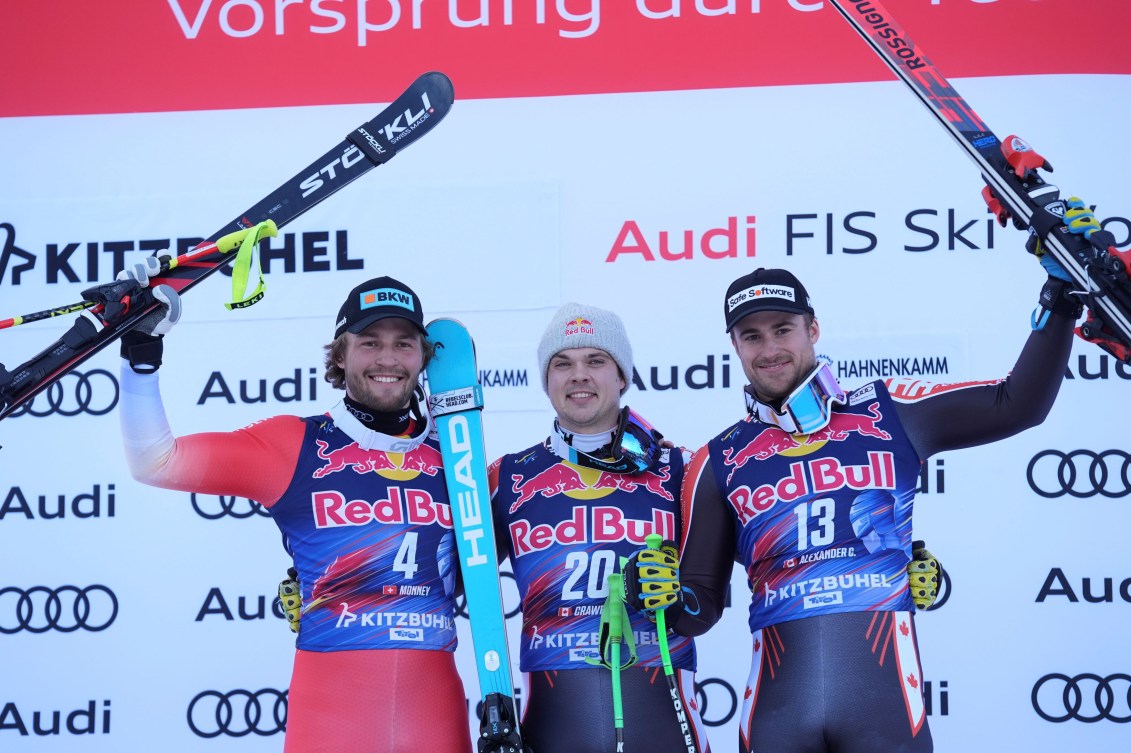
“I was excited for him, but also a little bit jealous that he beat me,” says Alexander. “But at the same time, you know, we’ve been competing against each other for so long. We’re best friends.
“I was nothing but happy for the guy and for the two of us to do it together. I knew how much of a big deal that was just for our team and kind of the sport in Canada in general.”
Crawford shares the sentiment: “Getting to go through that process and spend it with one of my best friends, that was really cool. I know for sure it just gives him a little more motivation.”
A legacy of camaraderie
That sense of connection and mutual support extends to the entire men’s speed team, which also includes Brodie Seger and Jeffrey Read.
“The camaraderie on our team is pretty world class,” says Read, a 28-year-old from Calgary. “We’re all kind of best buds, and it’s something that we’ve had for a long time.
“This is 10 years on the team, and basically the squad hasn’t changed. You really show it on any given training day that we’re raising the bar one step higher each run, each person, and that just elevates the whole team so hard.”
Read hasn’t just relied upon his teammates while coming up in the sport—he’s had his family. His older brother Erik competed at two Olympic Games (Beijing 2022 and PyeongChang 2018), while his father Ken was one of the original Crazy Canucks. That makes the prospect of following in the footsteps of Canada’s other famed alpine ski racers all the more exciting for this crew ahead of Milano Cortina 2026.
“It definitely feels like big shoes to fill, but I think that goes along with what makes me proud to represent Canada in general,” says Seger, a 29-year-old from North Vancouver who made his Olympic debut at Beijing 2022. “We have this strong history and these very cool kind of generations of speed skiers that have come through over the years.
“I just hope we can do them proud and keep that legacy going, because it’s a very cool history to share with them.”


